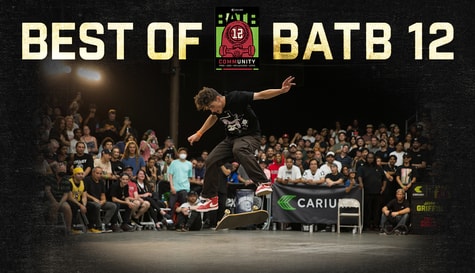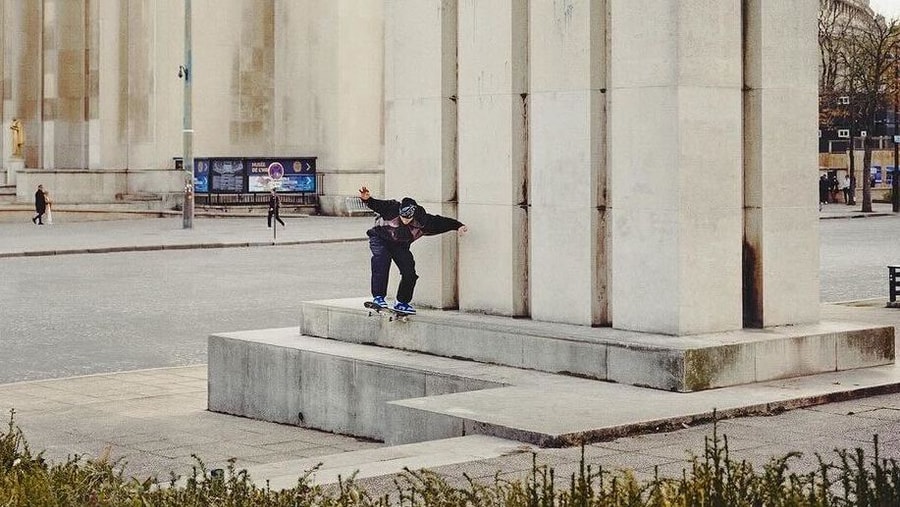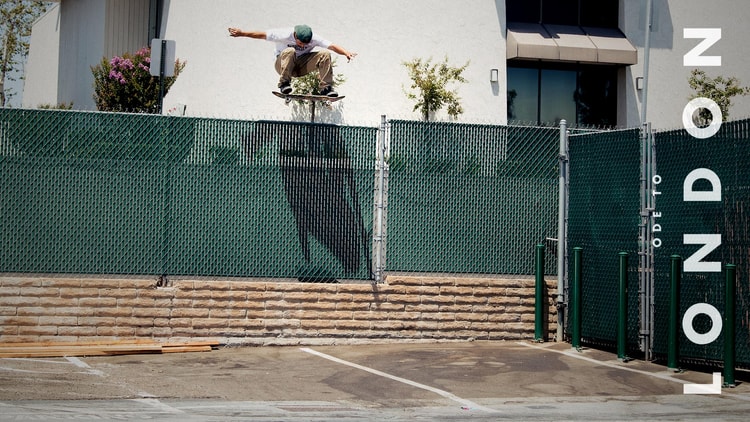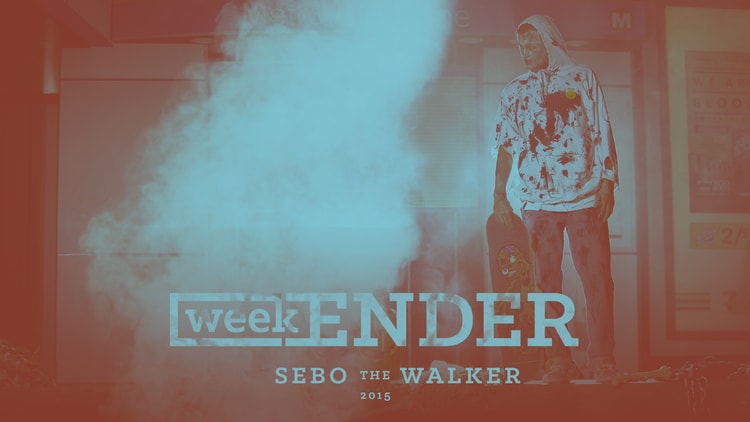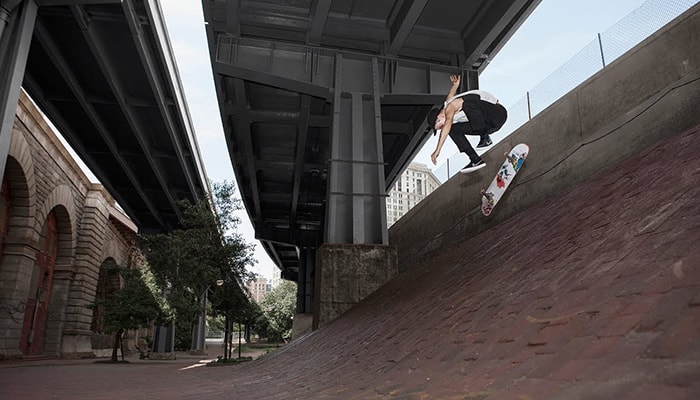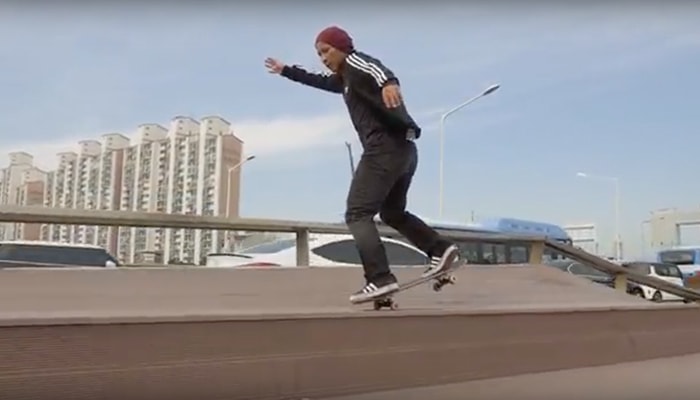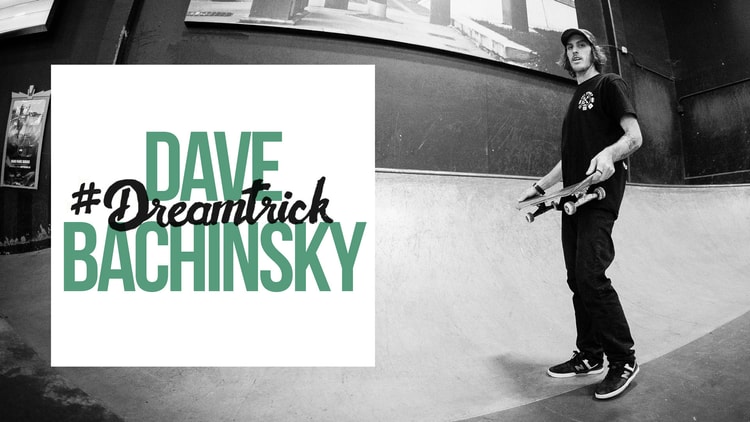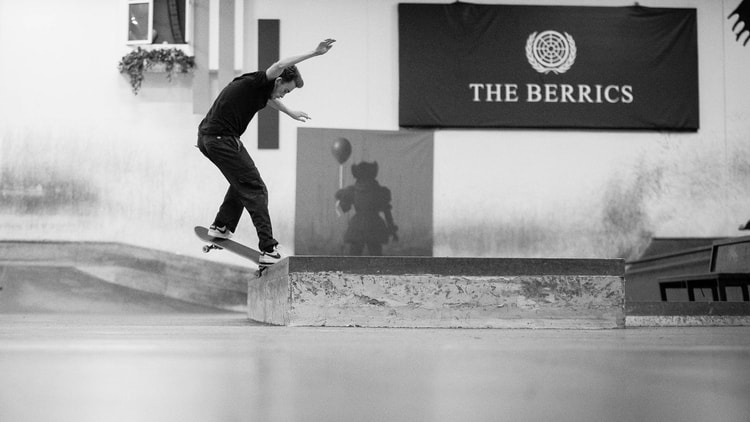INTERVIEW WITH JEREMY COHAN — Skateboarding Director, Producer

Jeremy Cohan (background) with Director of Photography for Number Six Pictures, Kyle Clark. Photo by Jason LeCras
WORDS: Stuart Gomez
In “Somewheres East,” the latest installment of Canon’s "The Creator Class," Jonathan Mehring explores skateable terrain off the beaten path on Canada’s East Coast. Over eight days in Nova Scotia and New Brunswick Mehring shot select adventurers from the CONS team as they searched out places that wouldn’t normally be associated with skateboarding. As is usually the case with counterintuitive skate photo backdrops, the results were incredibly photogenic: Mehring is a master of photography that makes you scratch your head, and how he captures such beauty is typically a mystery.
Jeremy Cohan, the director of “Somewheres East,” pulls back the curtain, creating a profile of Mehring that shows a master at work in diverse situations. As a skater growing up in New York, Cohan would make videos with his friends, and, like most skaters, he would produce it all himself, performing every role—filming take after take hunched over a stair-set, and all aspects of post-production. Naturally, Cohan eventually enrolled in an undergrad film program and continued to make skate videos (he completed the Chapman full-length, Short Ends, in 2007). It didn’t take long for him to become hopelessly sparked on documentaries; he decided to go to grad school to hide from work and focus his efforts on telling other stories instead.
The path to Cohan’s first non-skate documentary was influenced by mournful circumstances. When a close friend took his own life, Cohan’s grief led him to an exploration of the bereavement process; he learned that suicide’s aftermath has a wide reach, and the inability to cope can be universal. The experience was immortalized in his award-winning 2011 documentary, After. As Cohan explains the focus of the doc, it’s “not about the person who took his life, but about what it feels like to lose somebody. That was what I was going through and what people around me were going through.” During the production of After, Cohan spent over a year with a family in Queens who lost their son to suicide (“I sort of became another member of the family,” Cohan says).
Through the pain of losing a loved one and researching what it means for others to grieve, he discovered confidence as filmmaker. During his early years making skate videos, Cohan was handling every part of the filmmaking process without really knowing it. “As a skate video maker, you’re literally doing everything yourself,” he says. With After, “I started being able to work with cinematographers instead of just shooting everything myself. I was able to trust other people instead of being a one-man band.” The film earned Cohan a Director’s Guild of America Student Filmmaker Award in 2012.

Mehring at a waterfall in Canada with CONS. Photo: Cohan
His experience working on After was a springboard for Cohan, in a sense. Opportunities in film and TV followed. Editing gigs with HBO, MTV, PBS, and Vice, in a wide variety of genres (including the quick-cut comedy juggernaut, “High Maintenance”) helped cement his reputation. It was only a matter of time before Cohan was pitching projects that he was passionate about. This is how his work with Canon’s “The Creator Class” came about.
“I was trying to get more directing work, and I just sort of pitched a bunch of stories,” Cohan says. “I sort of, like, forced my work on them.” With the astounding success of National Geographic’s book, “Skate the World,” a piece on Mehring was a no-brainer. The globe-hopping photographer has traveled extensively, cranking out numerous articles for Skateboarder Magazine; “Somewheres East” would be Cohan’s chance to educate non-skateboarders about skateboarding by showcasing how our culture approaches photojournalism. But not in a cheesy way: “It’s got to be a tasteful version of breaking into shit and shooting crazy photos,” Cohan explains. “Just showing the process of a really good photographer with no assistants. Mehring comes up with ridiculous images that people with multiple assistants don’t [even] get.”

Mehring’s images, like those of scores of accomplished skate photographers, are commonly achieved through sometimes completely illegal means. This renegade quality is in full effect as “Somewheres East” opens: Mehring and a handful of explorers sprint across a junkyard, crawl under machinery, and wade through overgrown head-high foliage to reach some abandoned silos. The crew was dubious about this particular spot; although these were perfect fullpipes, the disused silos previously housed concrete mix—their degree of skateability depends on how much work you’re willing to put into the clean up effort. Luckily this is the CONS team, a group used to DIY elbow grease, and Zered Bassett got to work. “Nobody wanted to be there,” Cohan remembers. “It was definitely really sketchy and we were all like, ‘Can we get of here and not get arrested?’ Twenty minutes later… Well, that was clearly the best photo!”
Cohan’s short film about Mehring took roughly one month to complete, including post. With a typical longform project taking anywhere from one to three years, it’s become increasingly important for Cohan to work on shorter pieces. There’s an added benefit of dedicating some time to film work that may be less commercial while also being able to see the fruits of his labor in the world much more quickly.

The roughly five-minute “Somewheres East” strikes a delicate balance of being informative and pleasing to non-skaters, while also being enjoyable and insightful for the hardcore audience. “I hope it isn’t unwatchable for [skaters],” Cohan says. “I don’t wanna be too preachy, like, ‘Skateboarders are so special and amazing and what we do is great,’ which is all true, but I just wanted to present it in a straight forward way without being too preachy about it.”
The key to satisfying both camps may be Cohan’s focus on storytelling above all else. He keeps this in mind for all his projects, but most importantly when working in skateboarding. As an avid skater, he’s painfully aware of the hazards of representation by well-meaning mainstream filmmakers. (“I’m not trying to be artsy or anything; it’s not a video of slow motion and no story,” Cohan says.) By simplifying his message and not drowning the delivery in slow-mo bells and whistles, Cohan’s documentary work is able to communicate what really matters.
“There’s an attempt to tell a story, and that story is that Jon has had an amazing photography career,” Cohan says. “This guy is really, really good. Let’s just tell a story about why it’s really cool to get these images.” Enough said.
Jeremy Cohan is currently directing a feature music documentary while operating Number Six Pictures, a production collective that develops and produces commercial content, television and documentary films.



